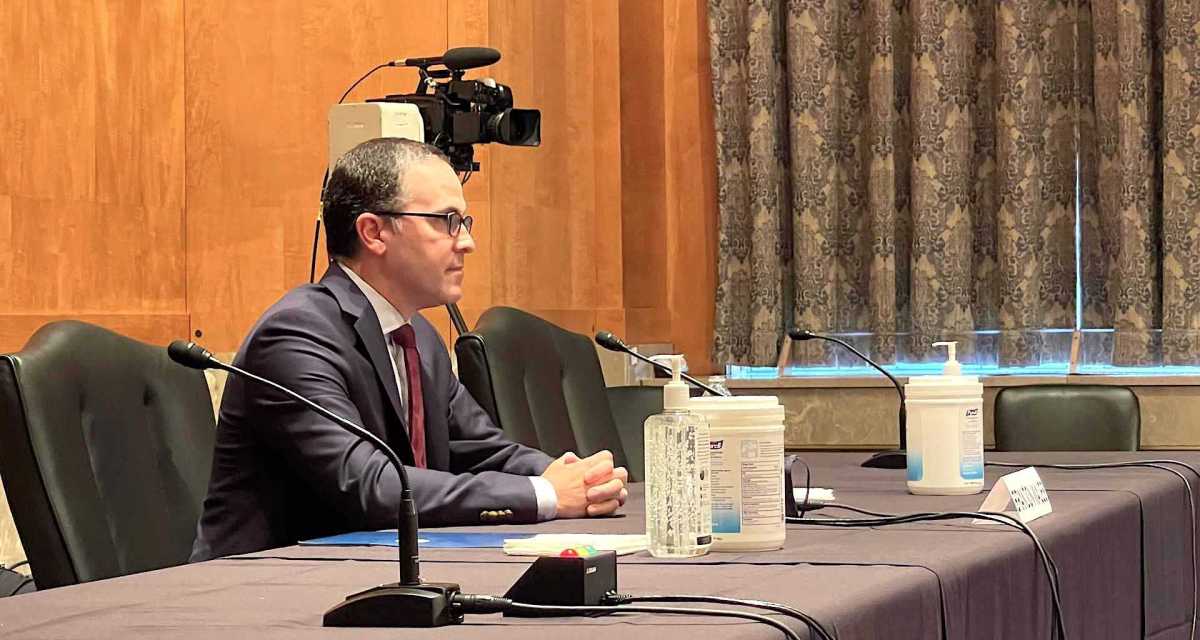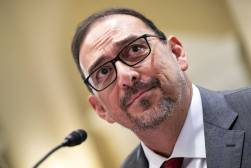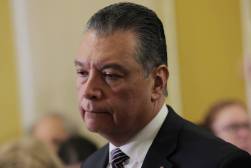No evidence SolarWinds hack touched election systems, acting CISA chief says

The compromise of products made by software company SolarWinds that allowed hackers to gain access to a wide array of organizations, including federal agencies, Fortune 500 corporations and at least three state governments does not appear to have affected any systems involved with election administration, the acting head of the Cybersecurity and Infrastructure Security Agency said Wednesday.
But speaking to the National Association of Secretaries of State winter conference, Brandon Wales, who became the agency’s leader last November, said there is still much more to be learned about the extent of the incident, which is believed to be the work of Russian intelligence agents conducting espionage on U.S.-based networks.
“We have no evidence any election systems were compromised as part of this campaign,” Wales said.
But, he said, U.S. intelligence still “does not have good information on all the victims.”
While CISA continues to address the fallout of the SolarWinds operation, which the Biden administration has made its top cyber priority, Wales spent much of his conversation with secretaries of state recapping the agency’s role in the 2020 election. In particular, he praised efforts like a nationwide tabletop exercise last July that drew more than 2,100 participants from 37 states — against the backdrop of the COVID-19 pandemic, and the quick sharing of information in October that, within 27 hours, enabled U.S. officials to attribute an email campaign threatening voters to the government of Iran.
Wales said CISA will provide secretaries of state in the coming weeks with a declassified briefing on foreign efforts to influence the 2020 election, following the intelligence community’s preparation of a classified report, though he suggested election officials won’t glean much more from that briefing they didn’t already know.
“There was likely not much that was already shared in the months leading up to the election,” he said.
Acknowledging controversy
Wales also acknowledged that some of CISA’s election work became controversial, specifically its efforts to rebut misinformation and disinformation about election procedures, voting machines, mail-in ballots and vote tabulation. During the closing weeks of the 2020 election and afterward, CISA created a website, Rumor Control, that housed correctives to many of the falsehoods about the election process being promoted on social media and elsewhere by a variety of actors, including former President Donald Trump.
Trump fired Wales’ predecessor, Chris Krebs, Nov. 17 after Krebs repeatedly debunked many of the baseless claims made by Trump and his allies.
While Wales did not mention Krebs directly, he noted that CISA, which enjoys broad bipartisan support in Congress, had become politicized.
“This agency has long benefited from broad bipartisan support in this country and with our colleagues on the Hill, and I think that future political leadership will not want to jeopardize that,” he said in response to a question from West Virginia Secretary of State Mac Warner. “We need to look at the the appropriate role that CISA plays when it comes to countering disinformation, how we can focus on the security aspects where we have the broadest authorities, responsibilities and ultimately expertise.”
But Wales also suggested that CISA is not backing away from its role fighting misinformation and disinformation, which was a major concern for secretaries of state of both parties last year. Rather, he said, it may refocus on other issues, like the pandemic.
“We’re already engaging with other agencies on disinformation in other areas, including vaccines,” he said, adding that CISA is collaborating with the Centers for Disease Control and Prevention on the effort.
Wales is expected to soon resume his role as CISA’s top career official once the Senate confirms a new political appointee to lead the agency. President Joe Biden is expected to nominate to the post Rob Silvers, a former Department of Homeland Security official and close ally of new Homeland Security Secretary Alejandro Mayorkas.






